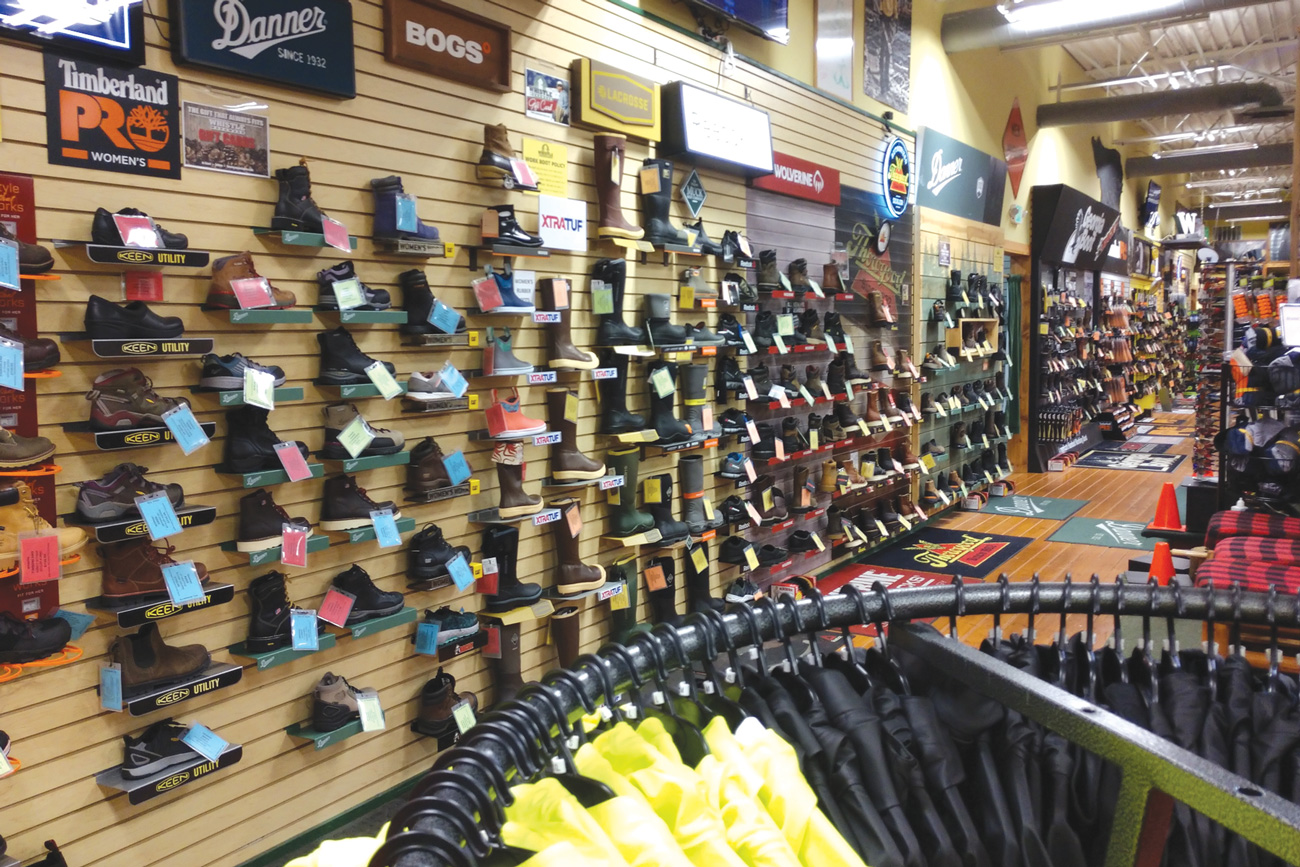
Whistle While You Work
Puget Sound retailer Whistle Workwear thrives serving a diverse work population.
Whistle While You Work
Puget Sound retailer Whistle Workwear thrives serving a diverse work population.

There’s more than one way to work, and for nearly a quarter century Whistle Workwear has grown its business by stocking the right product for all the different industries that call the Pacific Northwest area home.
The privately held, full-service chain operates nine doors in the Puget Sound region. Whistle stocks more than 400 styles from approximately 25 footwear brands to serve the needs of customers who range from young fast food workers, nurses, Boeing employees, military personnel, loggers and firefighters.
“Our diverse customer base means we must fine tune our assortments for each location,” said Scott Smith, Whistle Worker’s footwear buyer and a retired military man, Smith started at Whistle as a part-time sales associate in 2001, and has headed the buying for the past decade under Del Deide, who founded the business in Puyallup, WA in 1995 and remains the chain’s co-owner with his son, Scot.
Much has evolved at Whistle Workwear over the last 24 years, including the assortment. Today, footwear makes up 15 to 20 percent of the SKUs in stock, but accounts for half of all sales in dollars. Approximately 65 percent of the work footwear mix is reserved for waterproof safety toe styles that are a good fit for employees at Boeing, the construction industry or shipyards. Smith named Timberland, Danner, Keen Utility and Caterpillar as top performers, and brands that have best figured out the needs of today’s working Americans. Other key labels range from Dansko to Lacrosse-owned White’s, a favorite of loggers and the fire-fighting set. Retail footwear prices range from $50 for a basic slip-resistant style for a food service worker to $475 for a White’s model. Other categories are store-specific: At its Bellingham location, for example, stocking insulated footwear is a must to serve the area’s three refineries and the cold storage business tied to the fishing industry. Women’s work footwear, while a large percentage of Whistle Workwear’s footwear mix, does not yet generate half of the category’s revenues. But Smith said it’s not due to a lack of customers. “It’s a very overlooked market,” he said.
Smith says communication among Whistle Workwear’s staff and the chain’s consistent training of new store personnel are vital components in its winning formula.
“We have hands-on owners, and I learn stuff from them every day,” Smith said.
Training sessions are held six times a year. Often conducted with personnel from key vendors, the events also cover the proper use of the Brannock device, socks, insoles, how to look at people’s feet, how to care for a boot’s leather and how different boot silhouettes fit. It also covers answering the customers most critical requests.
“Customers generally ask 25 basic questions,” Smith said, “so you can condense them and centralize your training around those points.” Smith says the chain’s sales philosophy is simple: A solid one-on-one experience that treats the customer like a “visitor to your home.”
Focusing on comfort, durability and the product’s longevity are critical, he said — as is educating shoppers on why the lowest-price option isn’t always their best choice or the best value. The stores regularly faces sale floor challenges from Amazon, he said, where a particular style’s price could be selling for $25 less than Whistle offers it.
“We do not match Amazon pricing as that goes down the rabbit hole pretty quick,” says Smith.
Currently, Whistle Workwear personnel are in discussions on how to best service a group of workers who have been displaced by their go-to work retail option of choice, Sears. And a strategy should be in place soon.









%20(1).jpg)


.svg)